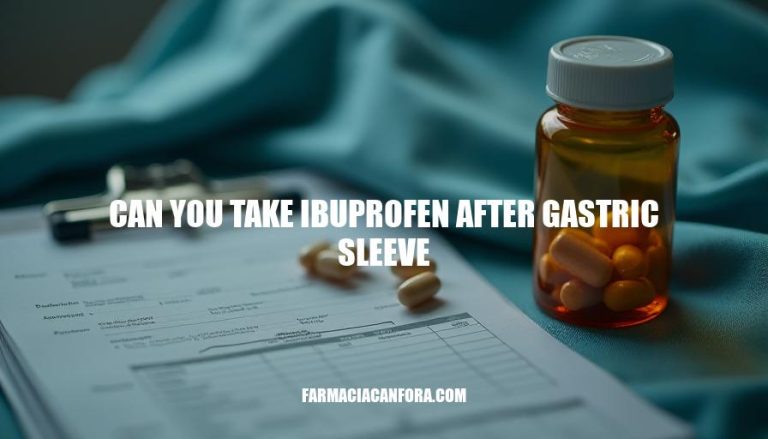


Gastric sleeve surgery, also known as sleeve gastrectomy, is a weight loss procedure where a large portion of the stomach is removed, leaving a smaller, tube-shaped stomach. This helps reduce hunger and calorie intake, aiding in significant weight loss.
After surgery, patients often wonder if they can take ibuprofen because it is a non-steroidal anti-inflammatory drug (NSAID) that can irritate the stomach lining and increase the risk of ulcers. This concern is particularly relevant due to the reduced size and altered function of the stomach post-surgery.
Taking ibuprofen after gastric sleeve surgery can pose several risks and complications:
Impact on Stomach Lining: Ibuprofen is a nonsteroidal anti-inflammatory drug (NSAID) that can irritate the stomach lining. After gastric sleeve surgery, the stomach is smaller and more sensitive, making it more susceptible to damage from NSAIDs.
Increased Risk of Ulcers: The use of ibuprofen can significantly increase the risk of developing stomach ulcers. This is because NSAIDs inhibit the production of prostaglandins, which protect the stomach lining from acid.
Gastrointestinal Bleeding: The irritation and potential ulceration caused by ibuprofen can lead to gastrointestinal bleeding, which can be particularly dangerous for patients with a reduced stomach size.
Interactions with Other Medications: Post-surgery, patients often take other medications that can interact negatively with ibuprofen, further increasing the risk of complications.
It’s crucial to consult with your healthcare provider before taking ibuprofen or any NSAIDs after gastric sleeve surgery to ensure your safety and well-being.
Patients who have undergone gastric sleeve surgery are generally advised to avoid nonsteroidal anti-inflammatory drugs (NSAIDs) like ibuprofen. This recommendation is based on the increased risk of stomach ulcers and irritation due to the reduced stomach size and altered anatomy post-surgery.
However, if NSAIDs are necessary, some guidelines suggest using the lowest effective dose for the shortest duration possible and always taking them with food to minimize gastrointestinal risks.
Here are some alternative pain management options for patients who have undergone gastric sleeve surgery and cannot take ibuprofen:
Always consult with a healthcare provider before starting any new medication.
Gastric sleeve surgery patients should avoid taking ibuprofen due to increased risk of stomach ulcers, irritation, and gastrointestinal bleeding.
If NSAIDs are necessary, use the lowest effective dose for the shortest duration possible with food.
Alternative pain management options include:
Consult a healthcare provider before starting any new medication.